NOTICE! Due to operational constraints we are no longer accepting post-consumer waste in our Compost Collection system. We are only accepting uncooked vegetables and fruits and coffee grounds in our community compost. We hope to provide full-service collection as soon as possible.
Compost is HOT!
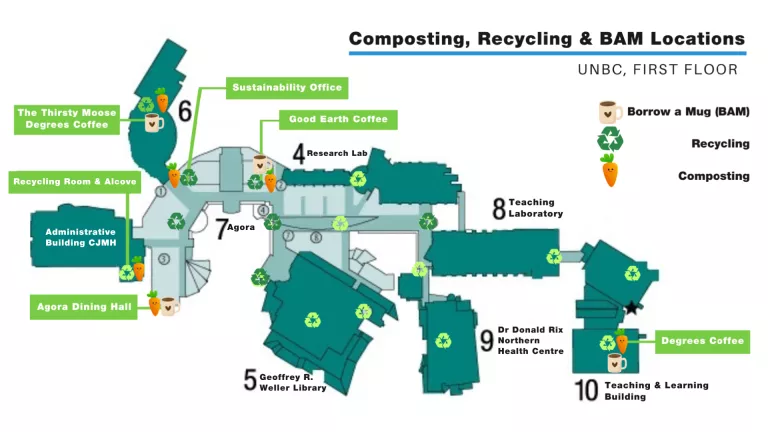
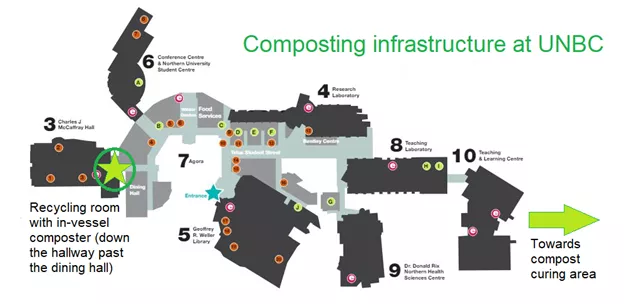
UNBC's Composting Program
In the summer of 2024, UNBC installed an in-vessel composter in the Recycling Room (based on a senior Environmental Engineering Capstone project report) in December. Organic waste such as food scraps will be processed in the composter and then sent to a curing and storage area north of the Teaching and Learning Centre (AKA Building 10).
UNBC’s compost program will divert tons of organic waste from the landfill every year and convert them to a nutrient-rich soil amendment.
Click below to explore the engineering students' academic project that served as the inspiration for our current composting program!
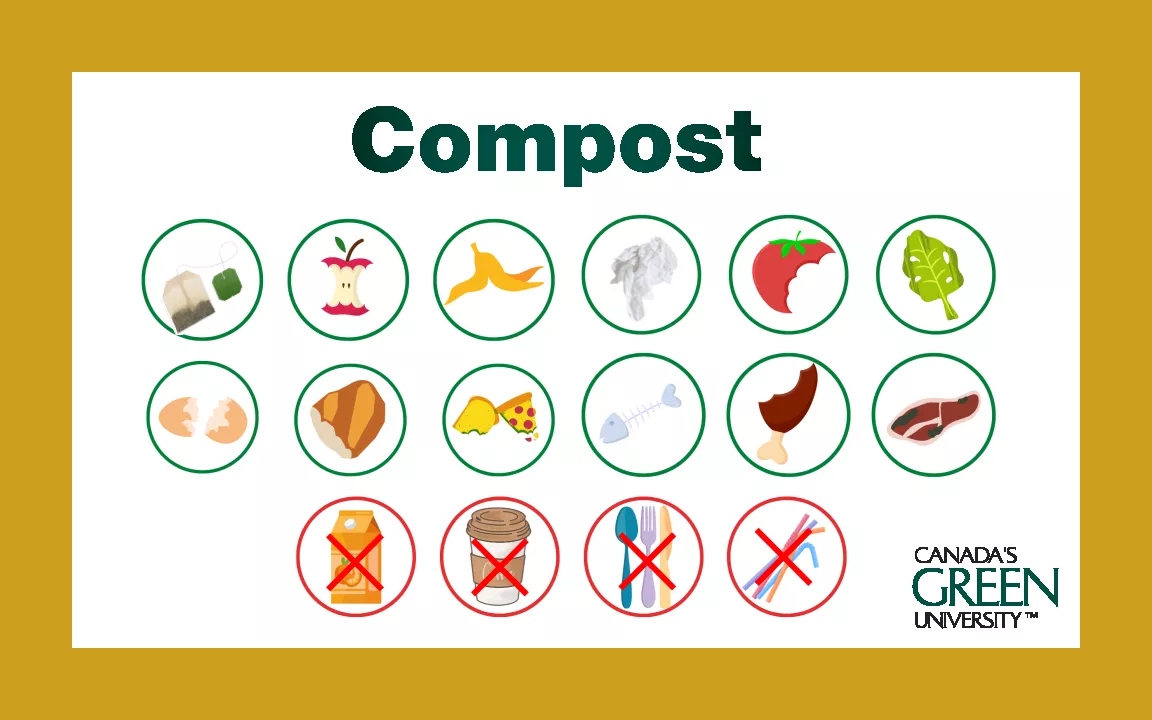
What materials can be composted at UNBC?
- Fruit and vegetable scraps (no produce stickers please!)
- Cooked food scraps
- Coffee grounds and tea bags
- Animal product scraps (e.g. eggshells, meat trimmings, moldy cheese)
The composter will reach temperatures hot enough to kill pathogens, which is why we can safely compost animal products and cooked foods!
What materials can NOT be composted?
- Soiled paper and cardboard (e.g. napkins, pizza boxes, paper plates)
- Liquids (e.g. soup, juice. Too much liquid makes the compost stinky and interferes with proper decomposition)
- Plastics (even plastics labeled as “compostable”)
- Metals
- Glass
- Ceramics
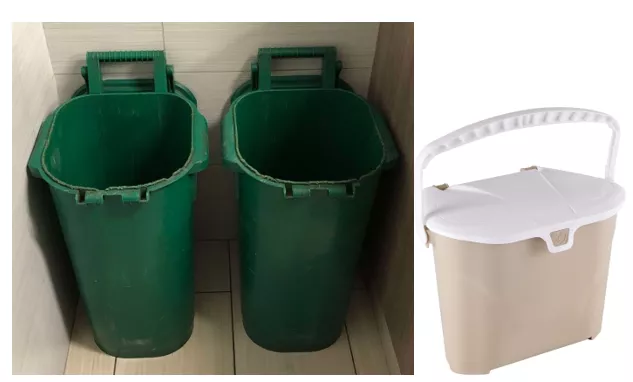
How does the composting program work?
In the pilot phase, food scraps will be collected from the Agora Dining Hall, Good Earth Coffee, the Thirsty Moose Pub and Degrees Coffee.
There will also be community green bins in three locations: one outside the Sustainability Office Agora 7-232, and one at both Degrees locations by the bus loop entrance and T&L. These bins are open to the UNBC community, indicated by the sign below. You are encouraged to drop off household and office compostables in this bin! Small home/office compost collection bins are available from the sustainability office.
To learn more or to request a bin for your home or office, please contact the Compost Operator, Keaton Freel at keaton.freel@unbc.ca.
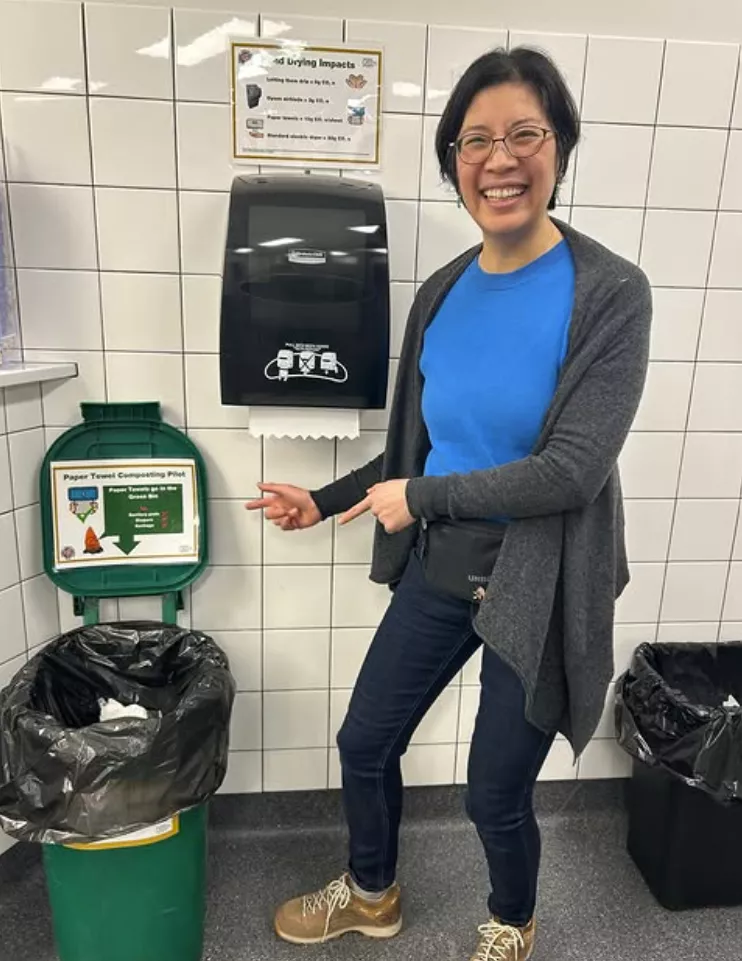
Composting Pilot
Collection of paper towel by the First Nations Centre Women's washroom started January 13, 2025, led by G-Force member and beloved Indigenous Student Services Representative Cher Mazo from the First Nations Centre!
So far, since January 24, 2025, 10 kg of paper towel has been diverted from the landfill, amounting to 11.4 kg of CO2 emissions saved - equivalent to driving up and down the hill from UNBC four times! We are looking to expand the pilot so if anyone is interested starting a paper towel composting pilot let us know!
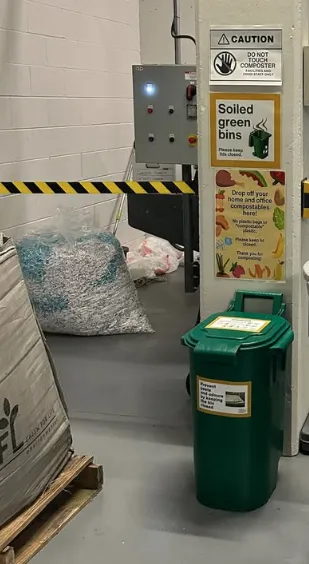
Where can I drop off my compost on campus?
The community compost bin collection at the Degrees and Sustainability Office locations will pause as of today, April 22, 2025. You can still bring compost to the system: A green bin will remain available in the Recycling Room for community use. You can also purchase a small-scale vermicompost system made available thanks to a Green Granted project "Vermicompost Worms as Pets".
Compost Reports
Compost Report 2024: UNBC 2024 Compost Report
Compost Report 2025: UNBC 2025 Compost Report